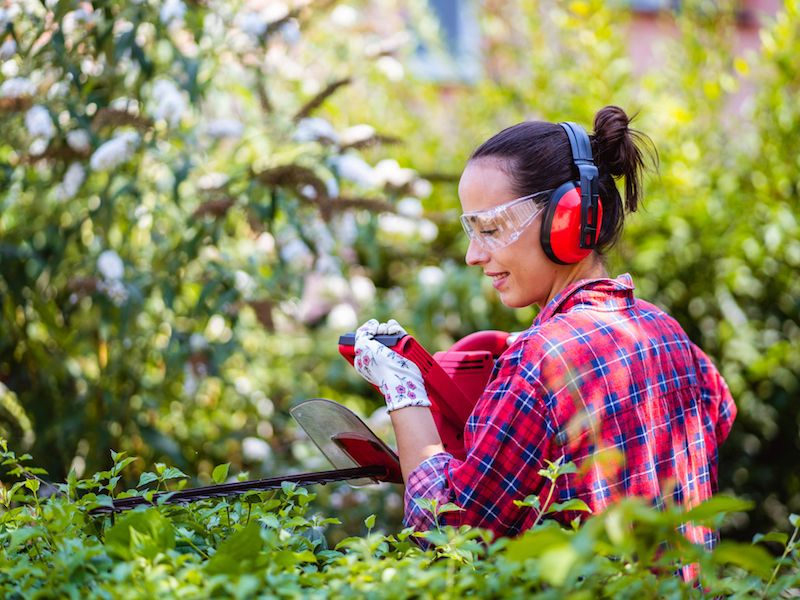
Eating right and protecting your hearing have some parallels. It sounds smart, but not many of us have a good concept of where to start. If there aren’t any obvious noise risks and you don’t consider your daily environment to be particularly loud, this is especially true. But everyday life can stress your ears and your senses, so practicing these hearing protection tips can help maintain your auditory acuity.
If you want to continue to enjoy the sounds around you, you should do everything you can to slow down the degeneration of your hearing.
Tip 1: Wearable Ear Protection
Using ear protection is the most sensible and basic way to safeguard your ears. This means that reducing loud and dangerous sound is a basic step you should take.
This means that when it’s needed most people will want to use ear protection. Hearing protection generally comes in two basic forms:
- Ear Muffs, which are placed over the ears.
- Ear Plugs, which are put in the ear canal.
Neither form of hearing protection is inherently better than the other. Each type has its benefits. Your choice of hearing protection should, most notably, feel comfortable.
Tip 2: Be Aware When Sound Gets Harmful
But how do you know when to wear hearing protection? We’re used to connecting harmful noise with painful noise. But in reality, sounds can begin to damage your hearing at a much lower level than you might expect. After only a couple hours, as an example, the sounds of traffic are enough to damage your ears. Recognizing when sound becomes dangerous, then, is a necessary step in protecting your hearing.
Typically sounds become harmful at the following thresholds:
- 95-100 dB: This is the typical volume of your earbuds or the level of farm equipment. This level of noise becomes harmful after 15-20 minutes.
- Over 100 dB: This is where you can injure your hearing very rapidly. Injury is done in about thirty seconds with anything above this limit. Jet engines and rock concerts, for example, can injure your hearing in about thirty seconds.
- 85 decibels (dB): After about two hours this volume of sound is damaging.This is the level of sound you’d expect from a busy city street or your hairdryer.
Tip 3: Make Your Phone Into a Sound Meter
We can take precautions to minimize our exposure, now that we have a concept of what volumes will be hazardous. The trick is that, once you’re out in the real world, it can be challenging to measure what’s loud and what isn’t.
That’s where your smartphone can become a handy little tool. There are dozens of apps for iPhone, Android, and everything in between that turn your device’s microphone into a sound meter.
Having a dynamic sound meter with you will help you measure everything you’re hearing in decibels, so you’ll have a much better understanding of what dangerous levels actually sound like in your everyday life.
Tip 4: Keep an Eye on Your Volume Buttons
Most people today listen to music using their phone or smart device, and they usually use earbuds while they do it. Your hearing is put at risk with this combination. Your hearing can be significantly harmed if you keep your earbuds too loud over a long period of time.
So keeping an eye on the volume control means safeguarding your ears. In order to drown out sounds elsewhere, you should never increase the volume. And we suggest using apps or settings to make sure that your volume doesn’t accidentally become hazardously high.
Earbud use can become something of a negative feedback loop if your hearing begins to decline; you could find yourself constantly raising the volume of your earbuds so that you can make up for your faltering hearing, and in the process doing more damage to your ears.
Tip 5: Have Your Hearing Tested
You might think that getting a hearing exam is something you do only when your hearing begins to wane. The difficulty is that it’s not always easy to detect a problem in your hearing without a standard to compare results to.
Creating data that can be used for both diagnostic purposes and for treatment can best be accomplished by scheduling a hearing examination and screening. This will give you a little extra context for future hearing decisions and ear protection.
Pay Attention to Your Hearing
It would be ideal if you could always protect your ears without any problems. But challenges are will always be there. So safeguard your ears whenever you can, as often as you can. Also, get routine hearing exams. Use these suggestions to improve your chances.